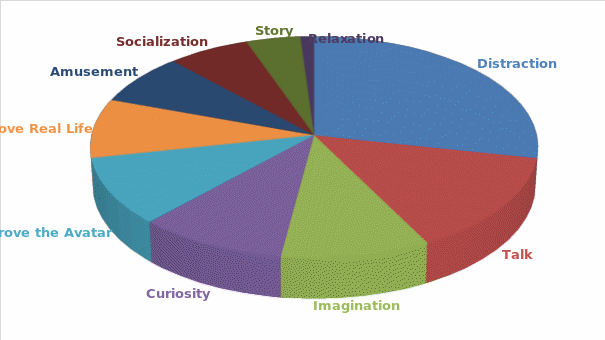Introduction
Playing video games can affect a person’s mental health similarly to the way gambling does. The American Psychiatric Association suggested that Internet Gaming Disorder is related to Gambling Disorder, which some researchers support, and others contradict (Von der Heiden et al., 2019). Excessive video games can lead to fewer academic and career accomplishments, problems with peers, and lower social skills, especially among younger gamers (Von der Heiden et al., 2019). Nevertheless, like many other parts of life, playing video games is not entirely destructive. Video games can also improve focus, promote multitasking, and advance working memory, and they are a popular leisure activity among adults (Von der Heiden et al., 2019). It is crucial to consider two sides of a matter, and video games are not an exception. While it is commonly perceived that video games negatively influence the younger population’s behavior, gaming is popular among adults and can have various effects on people of different ages.
People Who Play Video Games
To begin with, one should identify people who play video games and why they do so. According to Pallavicini et al. (2018), society typically believes that the main targets of the video gaming industry are children and teenagers, especially boys. However, Pallavicini et al. (2018) state that “the average player is instead 30 years old,” and the entire gaming population consists of almost equally women and men (p. 3). The below chart, modified from Von der Heiden et al. (2019), shows that the most shared reasons for playing video games are to distract oneself, have something to talk about, and improve avatars (p. 6). Video games seem to be more popular among adults who need to draw away from the real world.

Negative Effects
Following that, video games can have negative effects on people. Von der Heiden et al. (2019) suggest that although video games are prevalent among adults, younger gamers are at a higher risk of problematic gaming. According to Von der Heiden et al. (2019), people affected by video games often have “personality traits such as low self-esteem and low self-efficacy” (p. 2). Therefore, Von der Heiden et al. (2019) propose that such individuals are more likely to be addicted to playing, resulting in a lack of real-life friends, loneliness, lower psychological well-being, decreased academic achievement, and stress. Video games can lead to poor relationships with other people and problems in personal life, particularly among such vulnerable populations like children and teenagers.
Positive Effects
In addition to negative effects, video games can positively influence people. Pallavicini et al. (2018) indicate that adults from 18 years old vary “from a neurological and psychological point of view” compared to children and elders (p. 5). Therefore, Pallavicini et al. (2018) claim that healthy older adults can benefit from playing video games by enhancing cognitive flexibility, improving working memory, and focusing attention. As adults psychologically differ from other age groups, video games can positively affect their mental capabilities.
Conclusion
In conclusion, the invention of video games has had positive and negative effects on the gaming population consisting of younger and older people. Due to psychological distinctions between more youthful and adult gamers, the former is more likely to be negatively affected by video games and develop an addiction. Excessive dependence on playing can lead to loneliness, stress, and problems with well-being. On the other hand, adults represent the majority of the gaming population, and video games help grown-ups be more focused, improve memory, and advance cognitive flexibility. Nevertheless, the popularity of video games seems to be because of presenting people with opportunities for having something to talk about and distracting from reality. Therefore, instead of criticizing people for playing, it may be better to create an environment they would not want to distance themselves from and teach gamers to be mindful of their time in the virtual world.
References
Pallavicini, F., Ferrari, A., & Mantovani, F. (2018). Video games for well-being: A systematic review on the application of computer games for cognitive and emotional training in the adult population. Frontiers in Psychology, 1-49.
Von der Heiden, J. M., Braun, B., Müller, K. W., & Egloff, B. (2019). The association between video gaming and psychological functioning. Frontiers in Psychology, 10, 1-11.